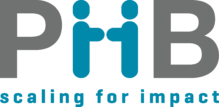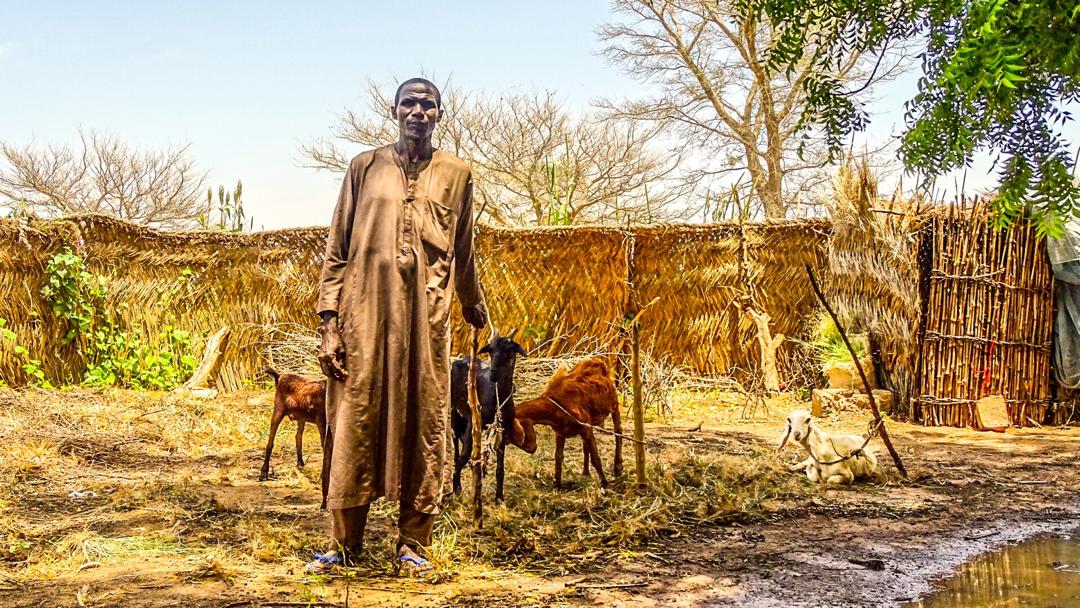
Mobile Money
Chronic drought and conflicts have brought widespread famine and misfortune to the land-locked West African country of Niger.
Mobile Money and the aspiration of entering a modern world
Chronic drought and conflicts have brought widespread famine and misfortune to the land-locked West African country of Niger. It is ranked among the bottom of the list of countries in the human development index and per capita income. Niger’s population has reached 18 million and growing at four per cent annually. Agriculture production falls short to feed its people, rendering more than 20 per cent of its population food insecure1.
Food insecurity is one of the leading causes of migration. Able-bodied people are fleeing to other places in search of better lives, leaving the elderly, young and the vulnerable behind to fend for themselves in this harsh land.
World Food Programme implemented cash incentives to promote food security in order to provide better living conditions for the needy. To receive this benefit, they have to use the proven WFP agriculture technique2. Beneficiaries receive US$55 a month for working their own field. To further scale this impact, WFP Niger and UNCDF have agreed to jointly work on digitizing social cash transfers to 10,000 households in vulnerable situations. UNCDF selected PHB Development and Innate Motion Motion to support the digitization efforts, by grasping the beneficiaries’ realities and needs, supporting the development of a reliable agent network and building capacities through tailored training.
The team first needed to understand the context more deeply through human-centric research and by speaking with people like Mikou Ango, a WFP beneficiary who said, “We want to be part of the modern world, but because we are poor, many people think we cannot; thus we keep on being excluded.”
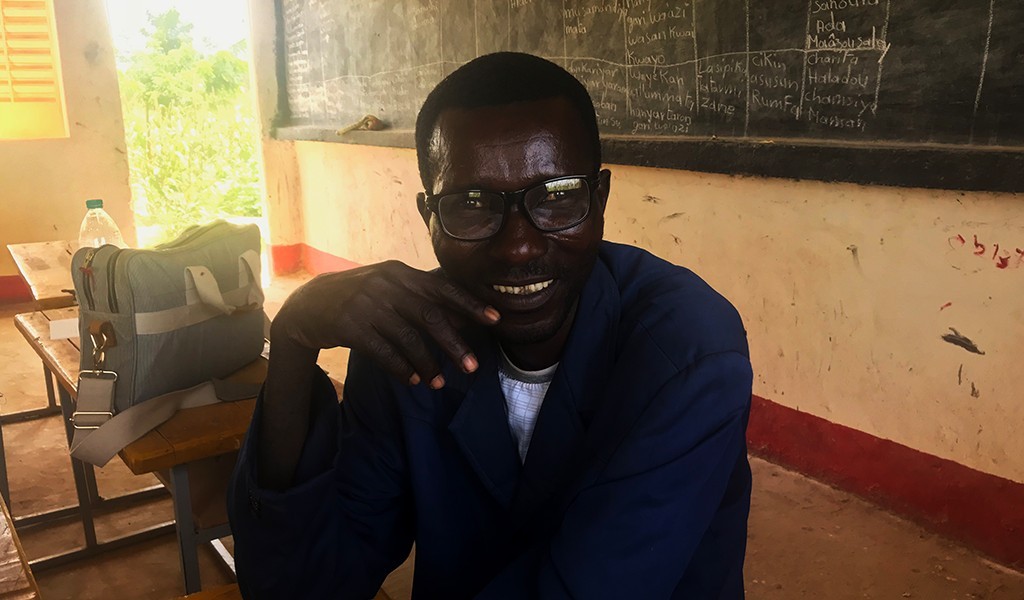
Based on the conversations with beneficiaries such as Mikou, our visiting team, assisted by UNCDF/PAM Members on the ground, began conducting human-centred immersions with rural WFP beneficiaries around Maradi, the second-largest city and economic capital of Niger. Lisa Chassin, PHB Partner and the lead consultant, said, “In order to make the shift to digital a success, we first needed to identify people’s needs and constraints in using and adopting digital financial services. These barriers hide in plain sight - but with our partner Innate Motion, we used empathy to connect with the beneficiaries, see the world from their perspective and delineate their inherent struggles, extracting significant learnings. This exercise allowed us to identify the digital capacity gaps among the WFP beneficiaries. It is these critical gaps that will be addressed through our training of trainers curriculum to be delivered in sessions with WFP's operational partners, NGOs, village leaders and other stakeholders.”
Amina Boubacar feels that WFP has eased the challenges of staying in Niger. “Life is easier now that we receive the support from the WFP. We eat better food, and more regularly; now I can afford to buy soap which impacts my skin health – before, even after the shower, I was always feeling muddy.”
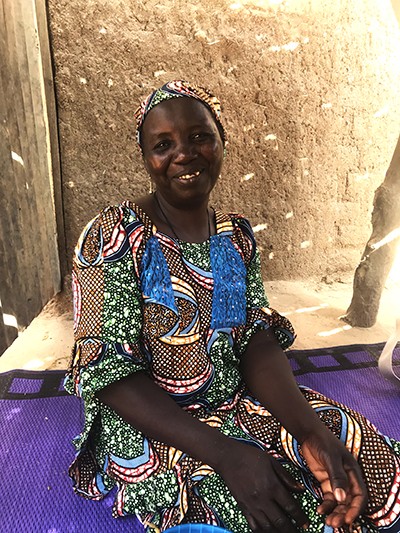
Despite the current structural challenges on the ground, such as poor connectivity, low literacy levels, low-levels of phone ownership – the WFP beneficiaries seemed excited about the possibilities of receiving their monthly disbursements via mobile money. They especially liked the discretion and the confidentiality the service provides. "Mobile money seems great! No need to get together on disbursement day, with everyone knowing that you are receiving money," said 55-year-old Amza Sha.
In order to enable cash disbursements effectively, UNCDF, WFP and the mobile money provider must ensure that the agent network is reliable and can support the WFP beneficiaries specific use-case in underserved communities. Strengthening the agent network for the digitization of cash transfers is, therefore, a critical next step – and our next mission will look specifically for ways to strengthen the deployment of agents to key sites to service WFP’s beneficiaries. So far, the findings from discussions with beneficiaries indicate that, for them, technology is a bridge to development and to the rest of the world. This project is a way to bring them closer to their aspirations of entering the “modern world” while being able to manage their finances better.
Legends:
1-Source https://www.wfp.org/countries/niger
2 – Video: WFP Resilient Agriculture Techniques in action.
If you are interested in our work, please contact me,
Lisa Chassin
PHB Partner and Head of Studies and Strategies
Photos: Dominique Tagba | Lisa Chassin
Story Contributor: Lisa Chassin
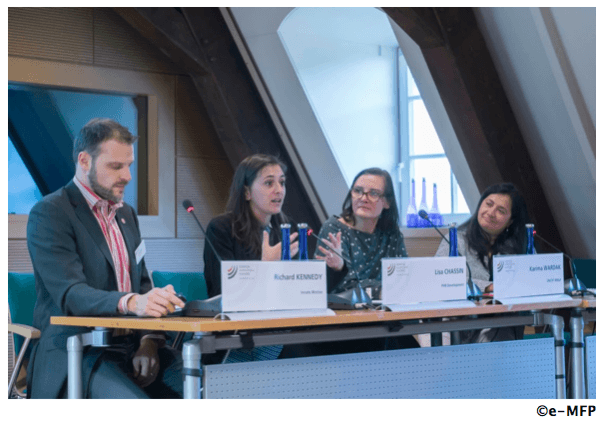
PHB at European Microfinance Week: Human-centric design, right to housing and empowering women
The European Microfinance Week 2018 brought together nearly 500 microfinance professionals from more than 60 countries to share expertise on human issues that can be improved through further cooperation in the evolving financial inclusion sector.
The European Microfinance Week 2018 brought together nearly 500 microfinance professionals from more than 60 countries to share expertise on human issues that can be improved through further cooperation in the evolving financial inclusion sector. PHB representatives Lisa Chassin and Ronald Everts contributed their expertise on developing topics in various sessions of one of the world’s top microfinance events in Luxembourg from 29 November to 1 December.
Lisa Chassin (second from left in photo) joined the Digital Innovation for Financial Empowerment (DIFE) working group that explored varied conceptions around human-centric design (HCD) to improve the impact of digital financial services. “This was an interesting first-time topic for the group,” said Lisa, “many tend to focus mainly on technology, and by putting the client back at the centre of our discussion we aim to better connect with the people we want to serve.”
A session on the final day featured Lisa on an expert panel, along with Karima Wardak with UNCDF MM4P, and Richard Kennedy and Glida Zarate Chabluk from Innate Motion. The panellists presented two projects they are conducting together in Benin and Senegal: the focus in Benin is to develop the digital ecosystem around the Zemidjans (merchant payments and digital tontines). In Senegal, they have been studying how to digitalise pension payments for former civil servants. The panel experts presented a step-by-step approach to an HCD project, including 1) stakeholder engagement on aligning objectives 2) ethnographic research and immersions for a more complete understanding of the people being served 3) co-creation sessions with partners and clients for an increased sense of ownership 4) implementing prototyping/action plans.
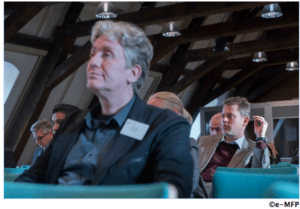
PHB’s Ronald Everts (in photo at above) pointed out developments in housing finance that are boosted by the United Nations’ focus on housing as a human right. “This, in combination with a feverish urbanization, creates opportunities for microfinance. Housing finance regulation varies widely per country, and making an investment in this sector can be cumbersome and knowledge-intensive,” shared Ronald about microfinance and housing. Additional EMW sessions attended by PHB included a training on the Social Performance Management tool SPI4, using the Cerise methodology.
An increasingly prominent focus with microfinance and at the EMW is the empowerment of women. It was pointed out that financers and investors should consider some central factors in making a positive impact:
- Women may often work part-time in their small enterprises, combining entrepreneurship with family tasks.
- Families of the women, including the men, should be incorporated in the approach to a sustainable empowerment of women.
The closing plenary of the EMW 2018 followed the theme of “Microfinance: positioning ourselves for the next decade” with “financial inclusion through technology” as an upcoming microfinance award focus. PHB Development continues to work toward its core mission of financial inclusion for all — often implementing mobile technology and innovative methods.
For more information on these PHB Development initiatives, contact:
Click this link to see more about the European Microfinance Week.
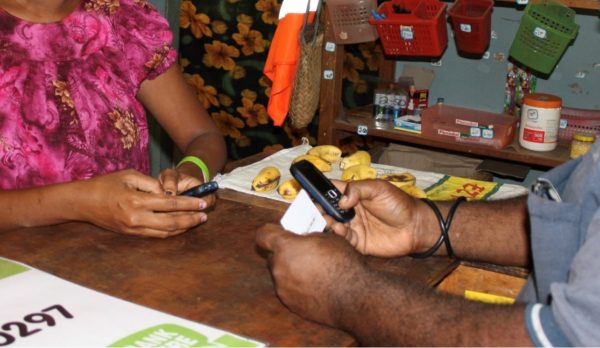
Increasing use of Mobile Money in Low-income Areas
The implementation of mobile money in developing countries is aimed at having the highest positive impact on the livelihoods of the poor.
Challenges and Solutions: Increasing the use of
Mobile Money in Low-income areas
The implementation of mobile money in developing countries is aimed at having the highest positive impact on the livelihoods of the poor. It is therefore important to identify some factors which may hinder the successful use of mobile money, and strategize how to overcome various obstacles in different geographical areas.
Language and product literacy
If someone does not understand a device and/or the language of its operations, then it is difficult for them to use it. This can be an obstacle in the success of mobile money that should be addressed with effective marketing and operational strategy, using visual and voice approaches, especially in rural areas of developing countries.
People in developing countries may not own a mobile phone due to the cost. And in cases which the poor may own a mobile phone, they may still be accustomed to their established systems of cash management. In these scenarios, using customer-centric approaches to develop products that take people’s needs into account can help foster adaptation and adoption.
Demographics
Young adults can be quicker to try out new technical and subsequent financial services. Convincing young adults to adopt mobile money services and then to spread the word among their neighbourhood and families can be plausible but still challenging, a route to success.
Agent professionalism
Product competence and behaviour of agents toward customers can make the difference in a positive approach to increasing use products and services – or a failure to deliver the needed support to enable customers to use mobile money systems.
PHB Solutions
To overcome some of these issues that may inhibit the positive impact of mobile money, PHB Development has been working with providers on identifying various solutions such as:
- Implementing voice recognition technology and call centers to support less literate customers using mobile devices;
- Using pictograms, icons and visual communications to explain the product, and to support customers;
- Ensuring products are developed in the most-spoken languages of the country in focus – not just the official language;
- Using a human-centred design approach to develop products addressing customers’ needs, therefore establishing tangible benefits for those are using or will begin using the mobile products and services;
- Ensuring customers are involved throughout the whole design and development process of a new product with regular interactions. This “rapid prototyping” is an opportunity to test a new product and its features with customers to see if they can understand and use it easily. Product developers can then make needed adjustments before a larger pilot and the rollout;
- Identifying and recruiting product ambassadors and early adopters – especially among the youth – to explain to their community how DFS services can be used for personal and community benefit;
- Ensuring a value proposition and a compelling business case is developed for agents and other stakeholders in the ecosystem while motivating agents to promote the product and effectively support customers;
- Addressing the adoption of mobile money with an ecosystem perspective, ie creating use cases to ensure people do not need to cash out mobile money but can use it to make payments and needed transfers.
